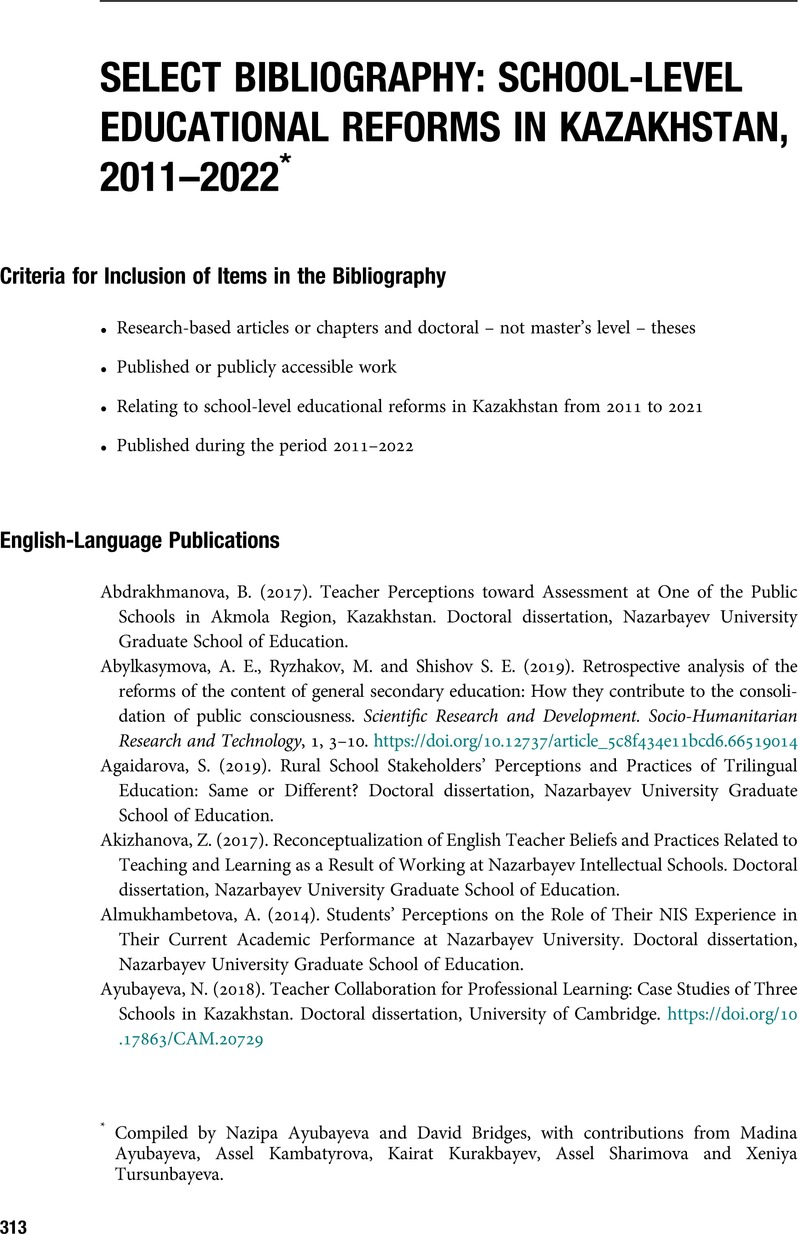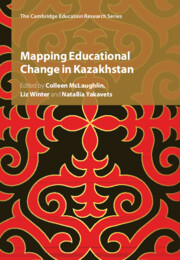Book contents
- Mapping Educational Change in Kazakhstan
- Mapping Educational Change in Kazakhstan
- Copyright page
- Dedication
- Contents
- Figures
- Tables
- Contributors
- Preface
- Acknowledgements
- Introduction
- Part I Foundations of Scaling Up
- Part II Piloting Initiatives and Scaling Up to the Whole System
- Part III Evidence of Implementation
- Conclusions
- Select Bibliography: School-Level Educational Reforms in Kazakhstan, 2011–2022
- Index
- References
Select Bibliography: School-Level Educational Reforms in Kazakhstan, 2011–2022
Published online by Cambridge University Press: 09 November 2023
- Mapping Educational Change in Kazakhstan
- Mapping Educational Change in Kazakhstan
- Copyright page
- Dedication
- Contents
- Figures
- Tables
- Contributors
- Preface
- Acknowledgements
- Introduction
- Part I Foundations of Scaling Up
- Part II Piloting Initiatives and Scaling Up to the Whole System
- Part III Evidence of Implementation
- Conclusions
- Select Bibliography: School-Level Educational Reforms in Kazakhstan, 2011–2022
- Index
- References
Summary

- Type
- Chapter
- Information
- Mapping Educational Change in Kazakhstan , pp. 313 - 324Publisher: Cambridge University PressPrint publication year: 2023



